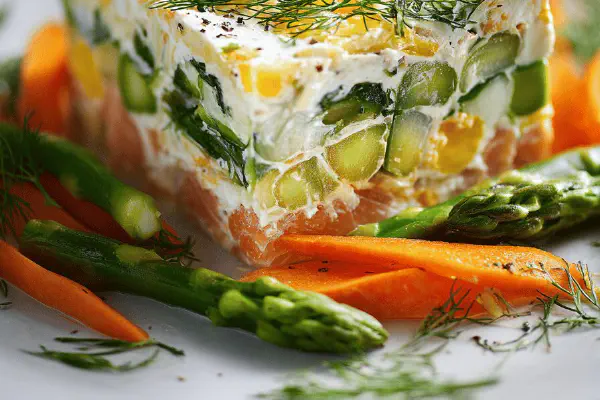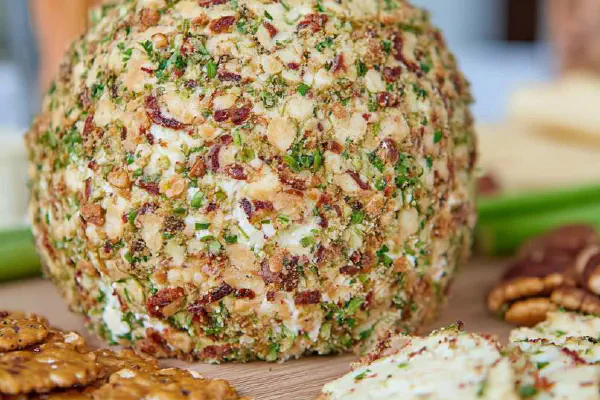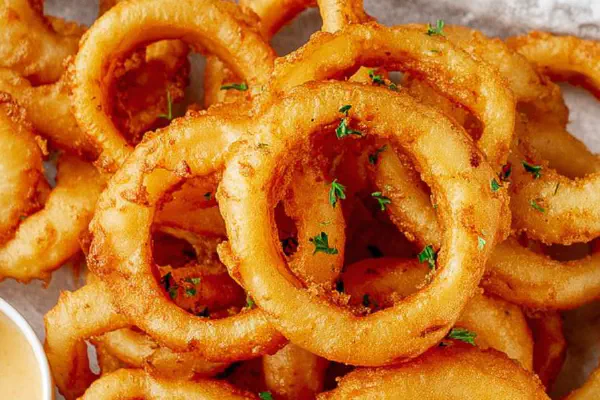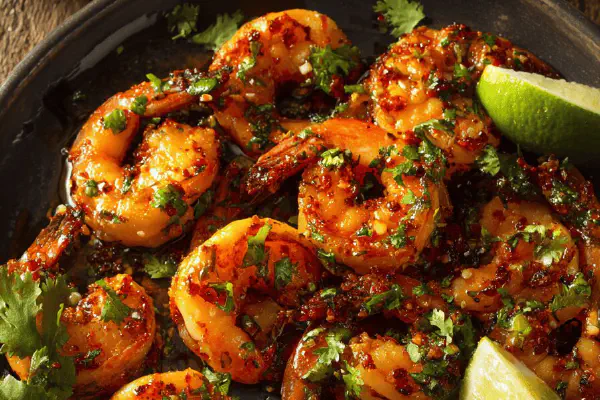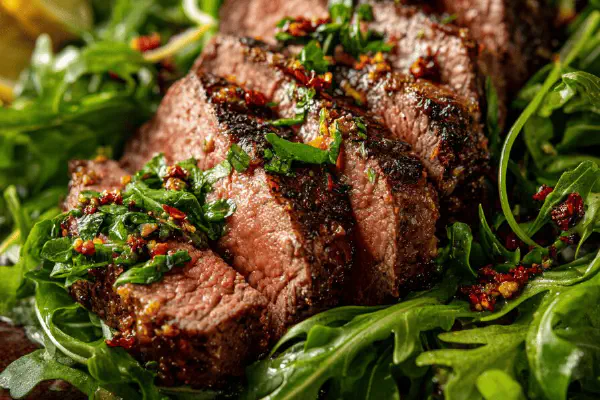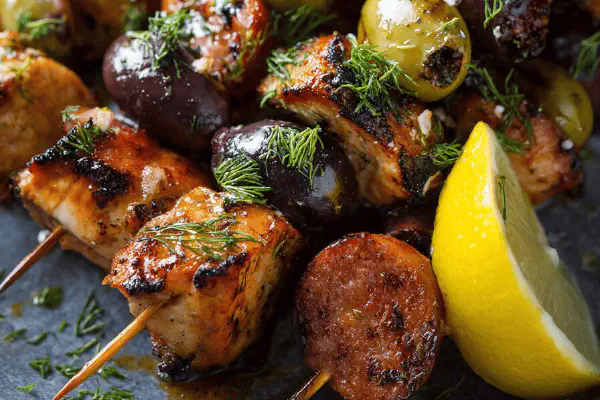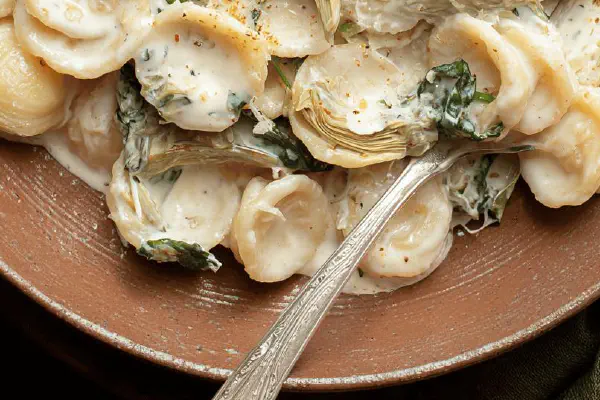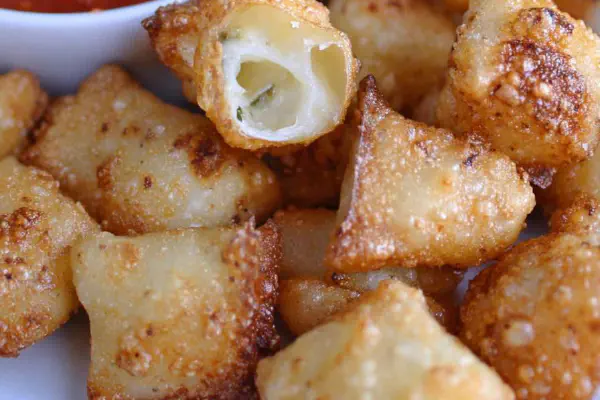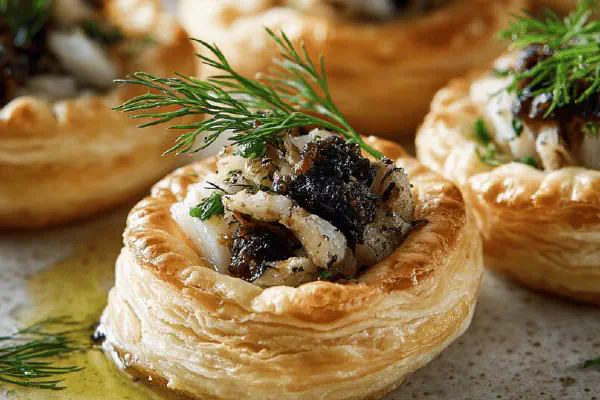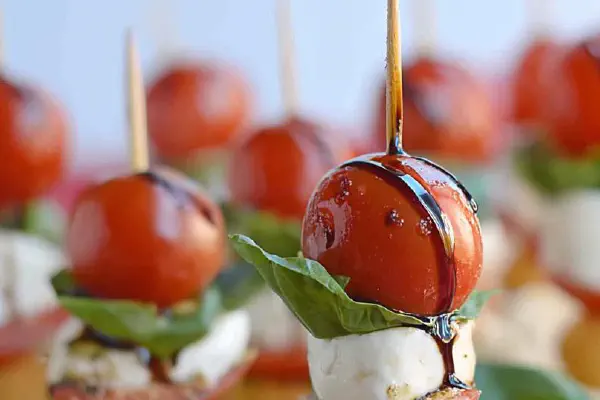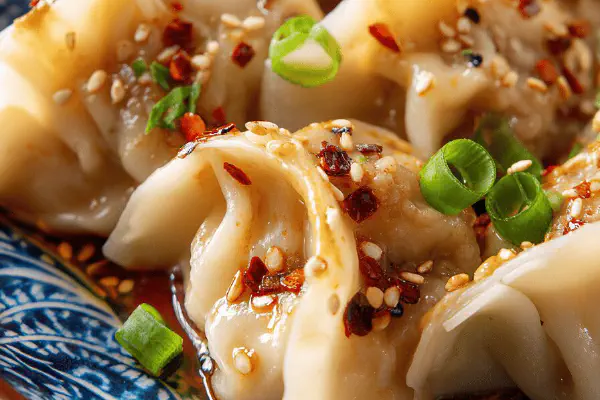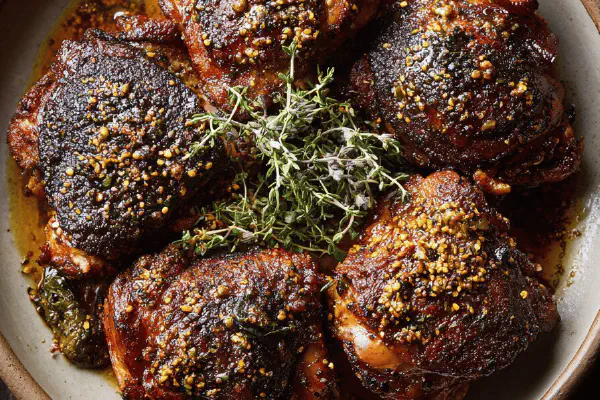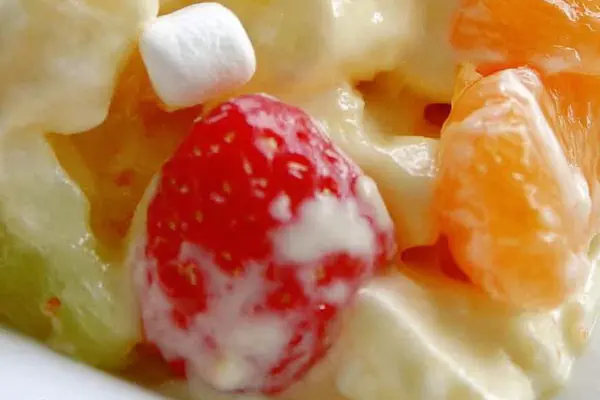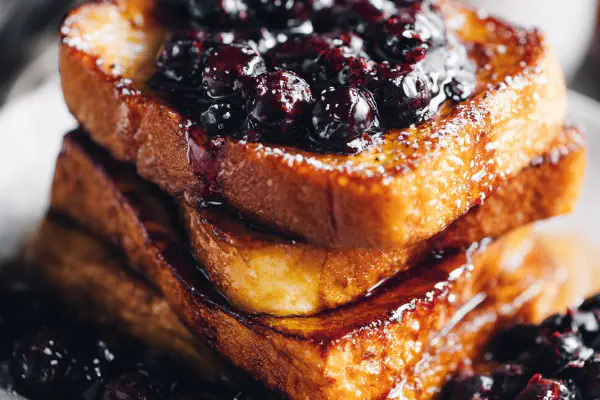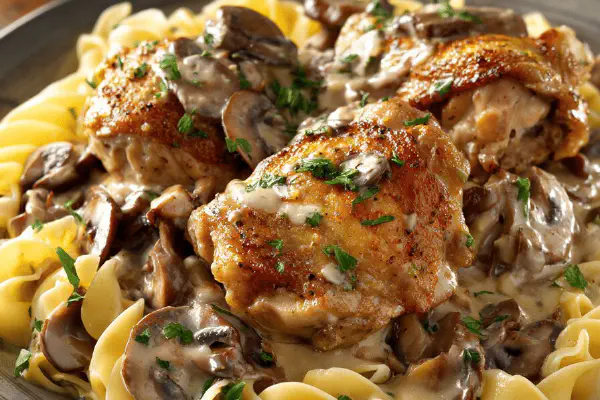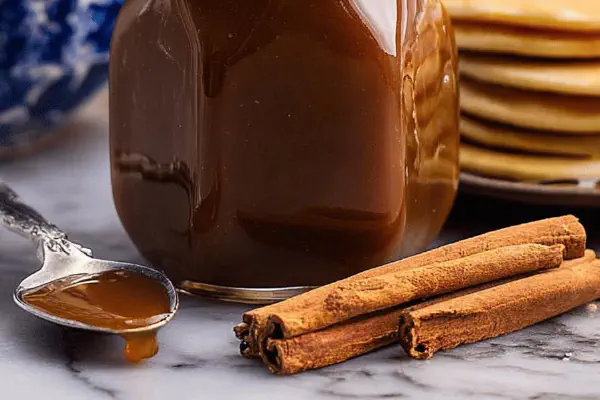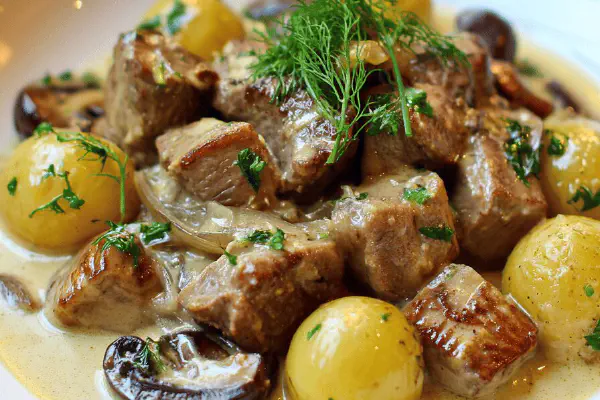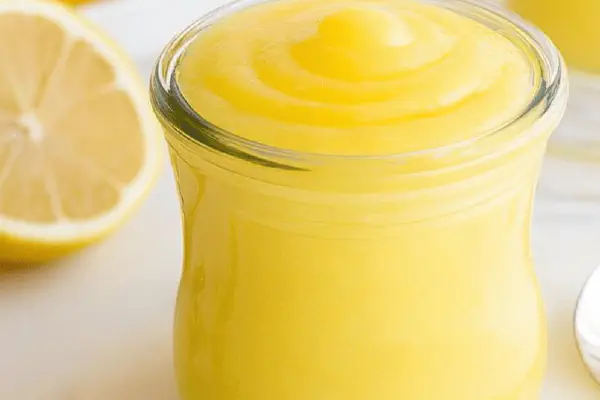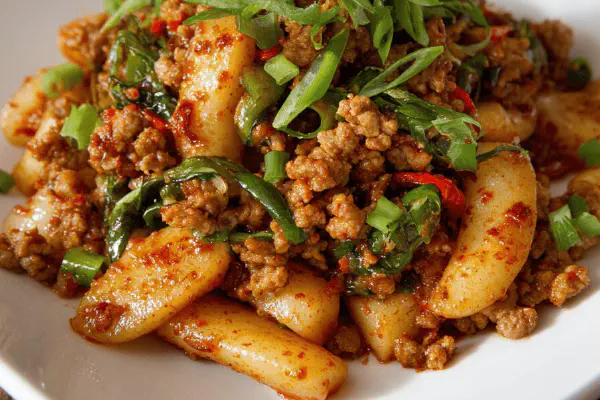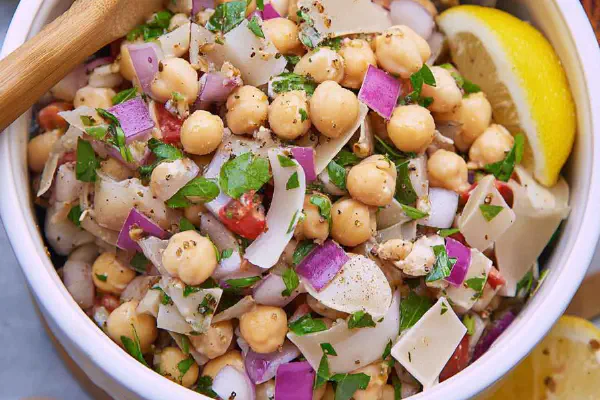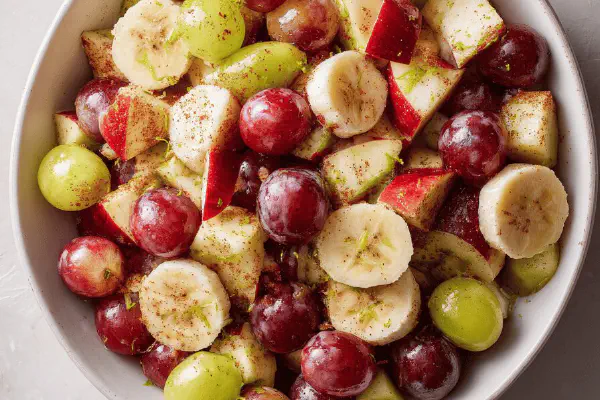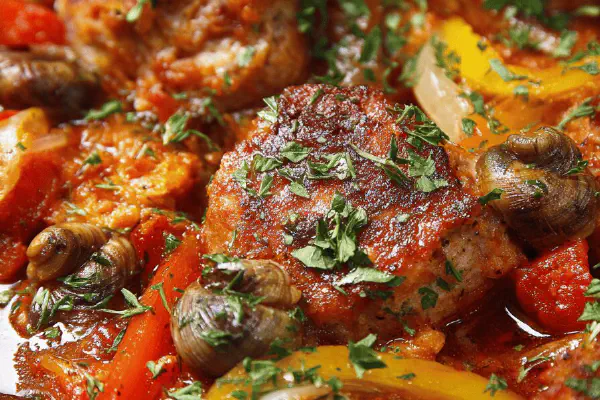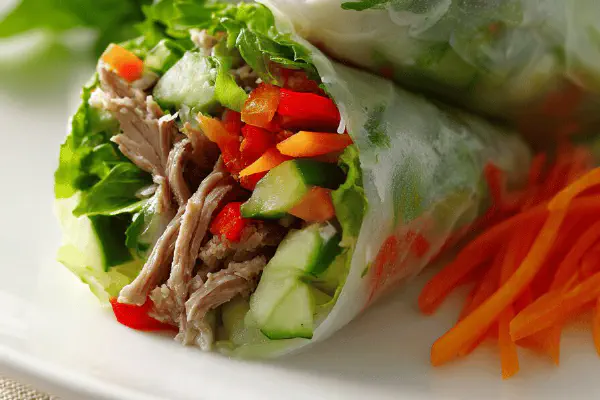
Marinated Italian Eggplants
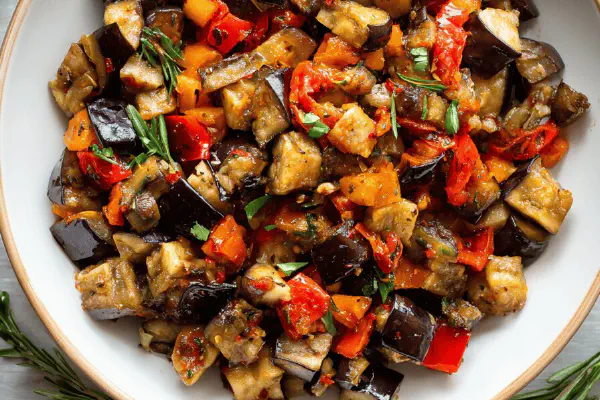
By Emma
Certified Culinary Professional
Before You Start
Ingredients
- 65 ml (1/4 cup plus 1 tsp) extra virgin olive oil
- 7 large garlic cloves halved lengthwise
- 1 fresh rosemary sprig
- 2 assorted bell peppers, deseeded and cubed (about 14 cubes each)
- 4 small Italian eggplants about 150 g each
- 150 ml (2/3 cup) aged balsamic vinegar
- 1.6 liters (6 2/3 cups) water
- 2 fresh thyme sprigs
- 3 dried bay leaves
In The Same Category · Appetizers
Explore all →About the ingredients
Method
- Heat a small heavy-bottomed pan over low heat. Pour in olive oil. Add garlic halves and rosemary sprig. Let garlic soften, not brown, for about 9 minutes. Smell sharp garlic mellow into a soft herb fragrance. Add diced bell peppers, cook another 6 minutes stirring often, peppers slightly soften but keep shape. Season with salt and freshly ground pepper. Set a fine mesh sieve over a bowl. Pour in the oil and veggies. Keep garlic and peppers aside. Toss out rosemary stem; it’s too woody.
- Bring a large pot to medium heat. Put whole eggplants in. Add reserved garlic cloves and peppers, vinegar, water, thyme sprigs, bay leaves. Season lightly with salt and pepper. Boil until eggplants have shrunken and soften through when prodded with knife tip, roughly 42 minutes but rely on feel and look: skins loose, flesh tender but not mushy. Pour mixture through sieve. Discard liquid and tough herbs, including thyme stems, bay leaves, and garlic skins.
- When eggplants are cool enough to handle but not cold, slice lengthwise, then dice into chunks. In a large bowl, mix eggplants and peppers with reserved flavored oil. Check seasoning. Let marinate at room temperature until fully cooled. The mixture intensifies as it sits, flavors mingle. Store airtight in fridge, last up to one week. Bring to room temp before serving; cold dulls nuances.
- Use a paring knife to peel tougher skin patches if needed; some prefer it. Substitute apple cider vinegar if balsamic is too sweet, but reduce quantity by 20% to balance acidity. For extra depth, I occasionally toss in a pinch of smoked paprika when cooking peppers—adds an earthy edge. Avoid overcooking peppers; too soft and they fall apart ruining texture contrast.
- Watch garlic closely when warming oil. It burns fast, turning bitter. Low and slow is the mantra. As for eggplants, don’t rush boiling; a dozen minutes extra softens interiors perfectly—sharp bites mean underdone. If you get bitter notes, likely old or oversized eggplants. Choose small, shiny ones for best results.
- To speed things up, prep peppers and garlic the day before and marinate longer; flavors develop exponentially overnight. I learned this the hard way, trying to rush and ending with bland blends. Patience pays off here.
Cooking tips
Chef's notes
- 💡 Warm olive oil low and slow. Garlic softens but don’t let it brown or bitterness sneaks in quick; dark spots mean wasted batch. Rosemary sprig infuses gentle pine without overpowering. Add peppers later or they’ll turn mush. Watch color changes. Oils shimmer when infused right.
- 💡 Simmer eggplants whole in vinegar water. Don’t rush boiling; bubbles should be slow, gentle. Overboil? Mushy mess doomed for blandness. Check softness with knife tip; skins loose means done but flesh holds shape. Thicker skins peel only if you hate texture contrast.
- 💡 Keep herbs minimal in final soak; too woody herbs like bay leaves or thyme stalks make bitter aftertaste. Discard after cooking. Fresh thyme preferred but dried works if halved quantity and added early for flavor release without harshness.
- 💡 Reserve infused garlic-pepper oil by straining right away. Toss out stems; woody bits bitter. Toss warm eggplants with this oil to avoid drying. Salt last; it pulls moisture out but too early and pieces get soggy. Room temp serving unlocks full aroma and tender mouthfeel.
- 💡 Substitute aged balsamic with apple cider vinegar but reduce volume by at least 20% or acidity overtakes. Smoked paprika adds smoky earthiness when tossed with peppers before cooking; test sparingly. Size matters: choose small fresh eggplants; soft interiors never bitter. Large or old ones bitter every time.
Common questions
How do I know eggplants are done?
Skin should feel loose, poke with knife tip for soft flesh. Not mushy or raw. Timing varies; trust feel and look. Slow simmer, bubbles gentle. Don’t rush or squeeze water out.
Can I replace balsamic vinegar?
Apple cider vinegar works fine, but reduce amount by 20 percent or acidity will dominate. Lemon juice possible—flavor different. Use milder vinegar if you want less sharp punch. Adjust spices accordingly.
Why do my eggplants taste bitter sometimes?
Old or oversized eggplants often bitter. Choose small glossy ones. Overcooked garlic in oil burns bitter quickly—watch low heat. Woody herb stems also add bitterness. Discard all tough bits after cooking.
How long can I store this mix?
Stored in airtight container, lasts up to a week chilled. Let come to room temperature before eating or flavor dulls; cold tightens textures. You can prep peppers and garlic day before to speed process and deepen flavors overnight.
